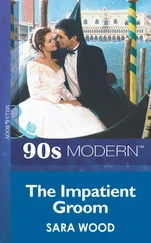J. Powers - Wheat That Springeth Green
Здесь есть возможность читать онлайн «J. Powers - Wheat That Springeth Green» весь текст электронной книги совершенно бесплатно (целиком полную версию без сокращений). В некоторых случаях можно слушать аудио, скачать через торрент в формате fb2 и присутствует краткое содержание. Год выпуска: 2000, Издательство: NYRB Classics, Жанр: Современная проза, на английском языке. Описание произведения, (предисловие) а так же отзывы посетителей доступны на портале библиотеки ЛибКат.
- Название:Wheat That Springeth Green
- Автор:
- Издательство:NYRB Classics
- Жанр:
- Год:2000
- ISBN:нет данных
- Рейтинг книги:5 / 5. Голосов: 1
-
Избранное:Добавить в избранное
- Отзывы:
-
Ваша оценка:
- 100
- 1
- 2
- 3
- 4
- 5
Wheat That Springeth Green: краткое содержание, описание и аннотация
Предлагаем к чтению аннотацию, описание, краткое содержание или предисловие (зависит от того, что написал сам автор книги «Wheat That Springeth Green»). Если вы не нашли необходимую информацию о книге — напишите в комментариях, мы постараемся отыскать её.
Wheat That Springeth Green — читать онлайн бесплатно полную книгу (весь текст) целиком
Ниже представлен текст книги, разбитый по страницам. Система сохранения места последней прочитанной страницы, позволяет с удобством читать онлайн бесплатно книгу «Wheat That Springeth Green», без необходимости каждый раз заново искать на чём Вы остановились. Поставьте закладку, и сможете в любой момент перейти на страницу, на которой закончили чтение.
Интервал:
Закладка:
“Yeah, sure. Joe, I think you should’ve said something to me, but I know why you didn’t. You’ve got this thing about money and the priesthood, and I can see how you got it, what with your first Mass and all. I can see how you got the way you are, Joe.”
Joe looked at him then. “How’d you get the way you are, Bill, or were?”
“All right, Joe.” Bill blushed, remembering, it seemed, his reluctance to get involved in parish finance, his “Thanks” when Joe offered to handle the strong-arm stuff.
“Look, Bill. These may be the best years of your life as a priest, and as long as I have anything to say about it, as long as you’re here, I want you to be just that, a priest — and not a bill collector. Time enough for that when you’re a pastor.”
“Sure, Joe, and thanks. But what if I want to help? I don’t like it now, the way it is now, with you doing all the dirty work. I mean it, Joe. I want to help.”
“We’ll see,” Joe said.
Joe had a pastor’s concern for his curate, a father’s wish for his son to have it better, and he also had qualms about revealing how many dp’s there were in the parish — a reflection on his system — but since there were so many, and the servant, as Scripture says, is not superior to his master, and Bill was so willing to help, Joe decided to let him.
So the alphabetical list, lines drawn through the names of those Joe had failed with, halos around those, possibly three, he’d persuaded to try again, was split between them. And at nightfall, except on Saturday and Sunday, usually after a few innings and a bath, in Bill’s case a shower, immaculate in black and white (Joe had read that the Wehrmacht in WWII wore its dress uniforms in battle), they’d (more like the RAF now) scramble their planes, Joe in his black bomber, Bill in his little caramel fighter, give each other a comradely salute, a slow wave from their respective cockpits, and take off on the night’s mission.
For Joe, by now, it was more of the same, but for Bill it was new, and if Joe returned to the rectory first, if Bill was still out there somewhere, as he was on the first night (watching TV with the family of the breadwinner who was expected to arrive at any moment but didn’t), Joe worried about him. He knew, from debriefing him, that Bill was catching a certain amount of flak — had been criticized for driving a foreign car, asked how much the rectory had set the parish back, advised that money matters should be discussed during business hours.
“Part of the trouble,” Bill told Joe, “is we’re calling on people during prime viewing time.”
“I know,” Joe said.
One night, after he’d been at it for a week, Bill said, “Parishioners in good standing could be used to do this job.”
“You want out, Bill? If you do, I’ll understand — no one better.”
“No, I just mean they are being used in some parishes.”
“For Arf, Bill, not for this. Don’t mention Arf to people, Bill, even indirectly. As far as this parish is concerned, Arf doesn’t exist. That’s not the problem here.”
“It’s not?”
“It’s a problem, yes, but it’s not the problem.” In admitting, in effect, that his system wasn’t working Joe had lost ground with Bill, as he’d known he would, but what Bill had proposed, and was perhaps still proposing, would be wrong. “It wouldn’t be fair to use parishioners in good standing for this, fair to them, or to the others, especially to them. It’d be like asking them to go to confession to a layman.” And Joe cited the case of the dp who wouldn’t talk to Bill because he was only the assistant, to which Bill nodded bleakly.
“On the other hand, Bill, this isn’t what we were ordained for, and whether we succeed or fail is immaterial.”
“Yeah, I know.”
“It’s not as if we were out trying to preach the Gospel.”
“No.”
“We’re just a couple of bill collectors.”
“Yeah.”
“So don’t take it so hard.”
“O.K.”
But Bill continued to take it hard, showing the weakness of his strength (innocence). Having done so well for his hairy missionaries, he may have thought he had a way with people. The trouble was, in Joe’s view, that Bill’s understanding of the Cross, like that of most young people today, was nominal, narrow, unapocalyptic, and so failure to him didn’t, as it did to Joe, make much sense.
When they returned to the rectory, though, their evenings out, fruitless for Bill and nearly so for Joe, became something else — the best nights yet for priestly fellowship. Joe, if he returned first, as he usually did, would hand Bill a drink (“How’d it go?”—“Still batting zero”), and Bill, if he returned first, now followed that practice (“How’d it go?”—“Lousé”). Bill hadn’t had occasion to make the drinks before, with Joe there, and need not have followed his example, but did. A little thing, yes. In other respects too, Bill was coming around — he’d entirely given up cigarettes for baby cigars and, almost entirely, the guitar (no little thing, in Joe’s view).
But priestly fellowship, like love, is perhaps best measured in intangibles.
So often in the past, even at the best of times, Joe had sensed in Bill a prim disapproval of the kind of thinking and drinking that went on in the study at night, a stubborn, subterranean desire to be elsewhere. Not so now. So often in the past Joe had been afraid to get up and attend to their glasses, lest Bill get up too — and go to bed. Not so now. So often in the past conversation had become debate, one man arguing from received knowledge, the other from earned experience, each more interested in grinding his generation’s ax than in arriving at the melancholy truth. Not so now.
Their evenings out, apart, had tempered and brought them together.
One night, before Joe could hand Bill a drink, Bill handed Joe a check, saying, “Apparently these people have been living in the parish since May, but never registered. The check’s for more than it should be. I told the man, but he said, ‘Forget it. I’ll see you again in May.’ How about that?”
“Uh-huh,” Joe said, looking at the check again. It was for $750 and from Mr Lane.
“Is something wrong with it?”
“No, no.” Joe, still under scrutiny — because he hadn’t jumped up and down with joy? — moved over to the TV set, on which he deposited the check with due respect, and sat down with his drink. “How’d it happen, Bill?”
“I was next door, and when I left — no sale — the man was getting out of his car. He said hello and invited me into the house. After that, well, one thing led to another”—Bill glanced at the TV set, where the check reposed.
“Hmmm,” Joe said.
“He’s something in public relations at Cones. She — I met her — she doesn’t say much. There are two other children — I mean, she’s going to have a baby.”
“Hmmm,” Joe said.
“I told ’em they’d have to come in to register, one of ’em.”
“You’ve seen ’em, Bill, so it can be done over the phone.”
“They’ll be glad to hear that.” Bill removed his collar and coat, as was his practice, and collapsed on the couch with his glass from which he drank deeply while, as was not his practice, scuffing off his big black loafers and exercising his toes, spreading them, in his black socks. Ugh.
“You know what, Joe?”
“What?”
“I needed that.”
“Uh-huh.” Then, realizing that Bill — he’d glanced at the TV set — had meant the check, not the drink, Joe said, “Congrats.”
23. PASTORAL AND HOMILETIC
BROWSING AMONG THE shelves in the Licensed Vintner’s, Joe stopped to open the door for a truck driver with a dolly of canned beer, and then went up to the counter with a bottle of red table wine — he had to buy something — and paid for it. “Thought Mr Barnes worked Saturday mornings.”
Читать дальшеИнтервал:
Закладка:
Похожие книги на «Wheat That Springeth Green»
Представляем Вашему вниманию похожие книги на «Wheat That Springeth Green» списком для выбора. Мы отобрали схожую по названию и смыслу литературу в надежде предоставить читателям больше вариантов отыскать новые, интересные, ещё непрочитанные произведения.
Обсуждение, отзывы о книге «Wheat That Springeth Green» и просто собственные мнения читателей. Оставьте ваши комментарии, напишите, что Вы думаете о произведении, его смысле или главных героях. Укажите что конкретно понравилось, а что нет, и почему Вы так считаете.












